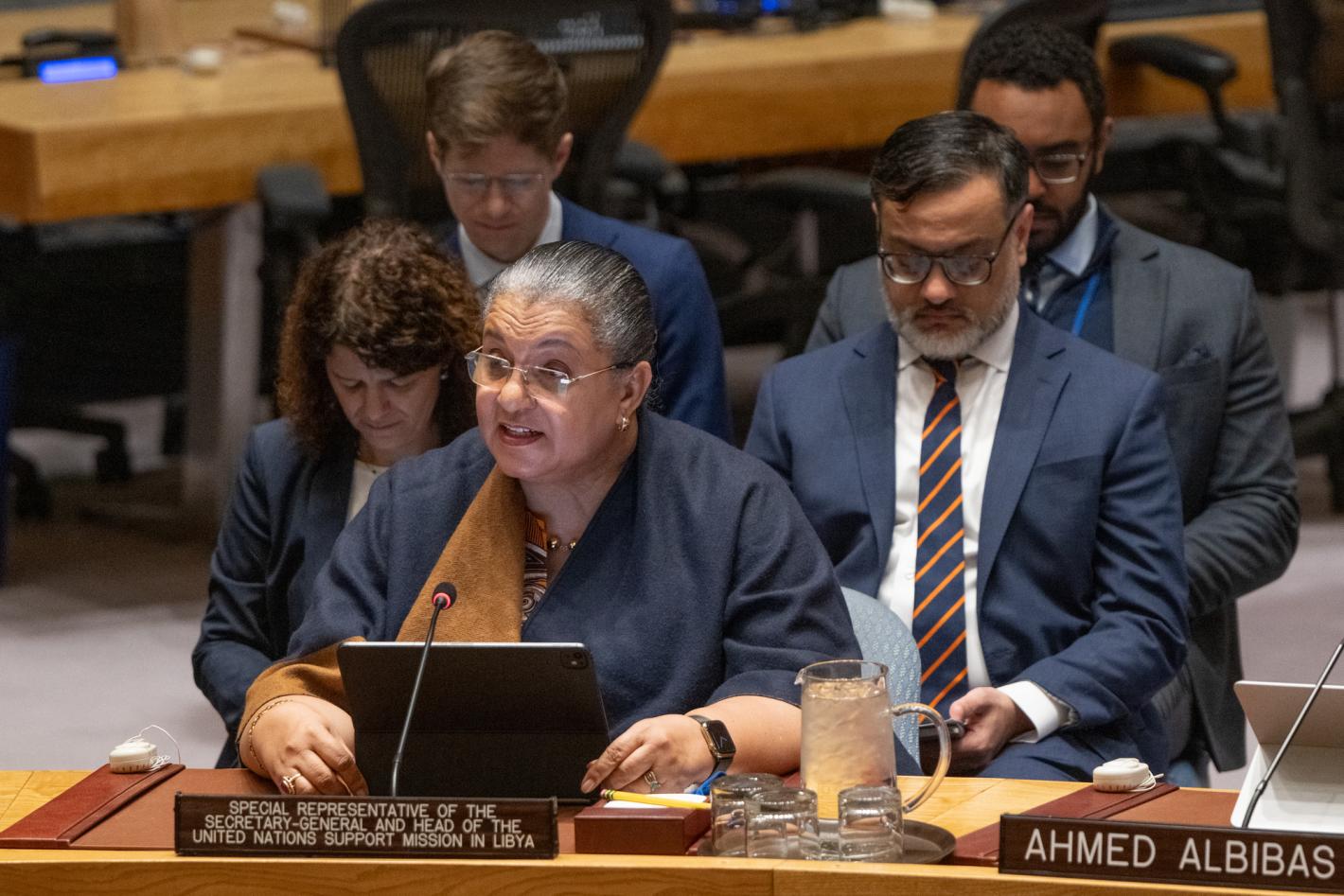TRIPOLI – Special Representative of the Secretary-General Hanna Tetteh received over 20 women civil society activists, academics, lawyers and municipal council members from Tripoli, Tarhouna, Misratah, Sabratha, Rigdalin, Sirte, Zawiya, Zuwara as well as Sabha, Murzuq and Ghat. This consultation formed part of the Mission’s ongoing public outreach on the outcomes of the Advisory Committee’s work, within the broader UNSMIL-facilitated political process.
Organized in partnership with UN Women, the group came together to offer their perspectives on how to overcome the ongoing political deadlock, building on the options and recommendations of the Advisory Committee. They also shared their concerns regarding the current security dynamics in light of the recent clashes in Tripoli.
The meeting, also attended by the Deputy Special Representative of the Secretary-General for Political Affairs, Stephanie Koury, discussed in-depth the Advisory Committee’s outcomes and proposals, including which of the Advisory Committee’s four proposed options would be most viable: “No matter which roadmap is chosen, there must be just representation of women and people with disabilities in any political process,” said one participant, an advocate for disability rights.
The women also welcomed the Advisory Committee’s recommendation to increase women’s representation in both chambers to 30 per cent and discussed strategies to advance this goal, ensuring Libyan women have a meaningful role in shaping the country’s future.
In May, UNSMIL published the Executive Summary of the Advisory Committee’s Report which outlines four proposed options to move the political process forward:
- Conducting presidential and legislative elections simultaneously;
- Conducting parliamentary elections first, followed by the adoption of a permanent constitution;
- Adopting a permanent constitution before elections; or
- Establishing a political dialogue committee, based on the Libyan Political Agreement to finalize electoral laws, executive authority and permanent constitution.
Regarding the latest security developments, SRSG Tetteh noted that UNSMIL has worked with the Presidential Council to establish the Truce Committee and continues to engage closely with security actors to sustain the truce.
While expressing appreciation for ongoing de-escalation efforts, participants strongly called for the full, meaningful participation of women in decision-making processes related to security arrangements, including representation in truce committees and ceasefire monitoring mechanisms.
Some participants underlined that the core issue in Libya remains a security challenge, which must be addressed in order to enable progress on the political front. One participant highlighted the importance of ensuring security for women during elections, urging efforts to eliminate barriers to women’s safe and meaningful participation.
There was also consensus on the need to move forward with comprehensive security sector reform, in parallel with the political process. Many underscored the urgency of unifying security institutions while several drew attention to violence in southern Libya, emphasizing that it must not be neglected.
“The South suffers daily conflicts at the border,” noted a participant from the region. “Libya cannot be based on east and west alone, the south must be involved,” she said, suggesting that regional-level engagement with equal representation could help address existing inclusion challenges and marginalization.
As part of its public outreach, UNSMIL also launched a series of consultations with Libyan stakeholders from across the country, complemented by an online survey inviting the broader public to share their recommendations and indicate their preferred path forward.
Women from across Libya are strongly encouraged to participate in the poll and ensure their voices are heard.






